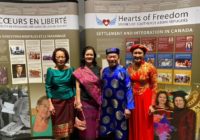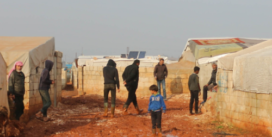- Fall Newsletter, 2025, Issue 15
- Using International Online Learning Modules to Engage Students in the Study of Critical Global Issues
- Upcoming Book Launch: Hearts of Freedom
- Announcing winners of the 2025 CARFMS Essay Contest
- The New York Declaration for Refugees and Migrants and its two Global Compacts: Addressing the Symptoms or the “Root Causes” of Forced Displacement?*
Using International Online Learning Modules to Engage Students in the Study of Critical Global Issues
By James Simeon, Professor, School of Public Policy and Administration, York University One of the central challenges for all higher education instructors is keeping their students fully engaged with the course content as part of their program and degree requirements. One sure way to engage your students in your course’s content and their learning is through international online learning modules developed through collaborative efforts with colleagues at universities abroad. The benefits of doing so not only outweigh…
Read More
